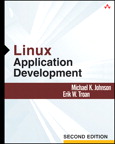English version below.
Retirado de http://www.debian-administration.org/users/lykwydchykyn/weblog/18:
I remember reading somewhere recently (and my experiences in the past pay testament to it):
If you see a baffling problem, it’s surprising how often its down to DNS or host name resolving.
Tradução livre do texto acima:
Eu me lembro de ter lido em algum lugar recentemente (e minhas experiências passadas confirmam isso): se você encontrar um problema que você não faça idéia de qual seja a causa, é surpreendente o quão comum que a causa seja DNS ou resolução de nomes.
Basicamente, o camarada atualizou o Debian e então um programa passou a ficar incrivelmente lento ao conectar com o MySQL. No final o problema era com o DNS.
Eu me lembro alguns anos atrás, quando minha máquina com Debian de uma hora para outra começou a levar vários minutos pra dar boot, quando antes ela iniciava em cerca de um minuto apenas. No fim o problema era o exim (configurado como servidor local), que tentava resolver o nome da máquina durante sua inicialização, e por causa de algum motivo estranho de que não me lembro agora, o arquivo /etc/hosts perdeu a entrada da própria máquina.
Então eis a lição… ao encontrar problemas estranhos sobre lentidão súbita e inexplicável, confira se a resolução de nomes está funcionando (DNS, arquivo hosts, WINS ou o que quer que seja)
(e eu acabei de me lembrar que esse tipo de problema já me deu muita dor de cabeça com o Tivoli Framework em várias ocasiões…)
Taken from http://www.debian-administration.org/users/lykwydchykyn/weblog/18:
I remember reading somewhere recently (and my experiences in the past pay testament to it):
If you see a baffling problem, it’s surprising how often its down to DNS or host name resolving.
Basically, this guy updated Debian and then some app started behaving very slow when connecting with MySQL. Turns out it was a name resolution problem (DNS).
I remember some years back ago, when my Debian machine suddenly started taking several minutes or so to boot up, when previously it just booted in a minute or so. Turned out the problem was with exim (configured as local server only), which tried to resolve the machine name during start up, and because of some weird reason that I can’t remember now, the /etc/hosts file lost the entry for the own machine.
So here’s the lesson… if facing weird problems concerning suddenly, unexplainable slowness, check if the name resolution is working (DNS, hosts file, WINS, or whatever)
(and I just remembered that these issues give me a lot of headache with Tivoli Framework in several occasions…)





 A Pixar acertou em cheio de novo.
A Pixar acertou em cheio de novo.